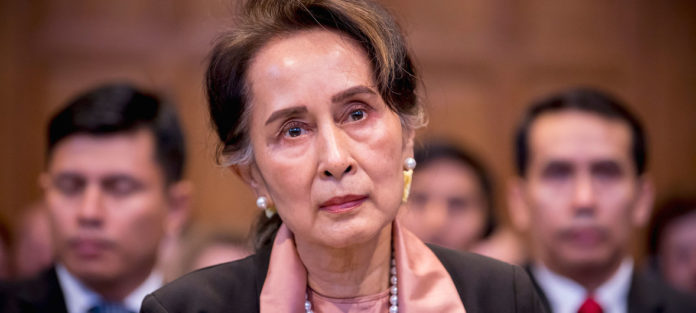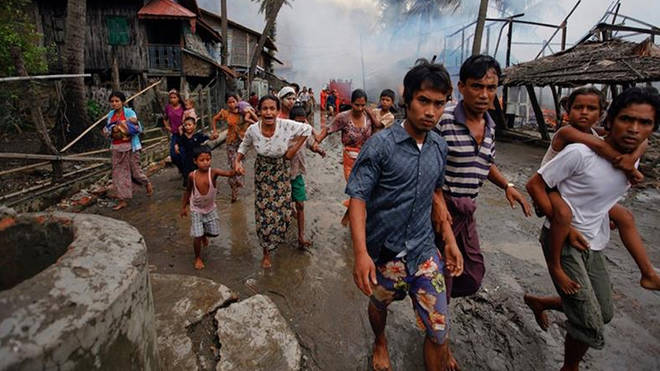THE HAGUE (Deutsche Welle) — Myanmar’s civilian leader Aung San Suu Kyi appeared at the United Nations International Court of Justice in The Hague on Tuesday, December 10, to defend her country’s military from allegations of committing genocide against the Rohingya minority.
Suu Kyi watched the proceedings on Tuesday without any show of emotion as a legal team for Gambia detailed accounts of atrocities allegedly perpetrated by Myanmar military personnel in western Rakhine state. They are accused of committing crimes including killings, sexual violence and the destruction of tens of thousands of Muslim minority homes in the state.
Acting on behalf of the 57-country Organization of Islamic Cooperation, the Gambia is asking the world court to take “all measures within its power to prevent all acts that amount to or contribute to the crime of genocide.”
A series of coordinated attacks by Rohingya insurgents on Myanmar security forces in the north of Myanmar’s Rakhine State triggered a crackdown by Myanmar forces that has sent a stream of Rohingya villagers fleeing to Bangladesh. About 400 people have been killed in the clashes in Buddist-majority Myanmar.
Opening its case, the Gambia’s Justice Minister Aboubacarr Tambadou urged the court to “tell Myanmar to stop these senseless killings, to stop these acts of barbarity that continue to shock our collective conscience, to stop this genocide of its own people.”
UN investigators have also accused the Myanmar military of undertaking mass killings and committing atrocities against Rohingya Muslims with “genocidal intent.”









